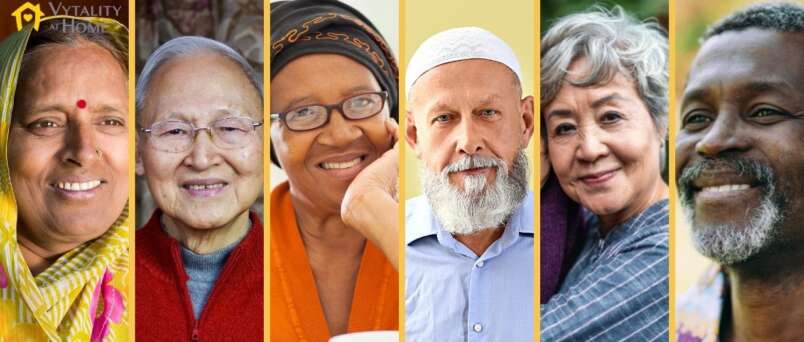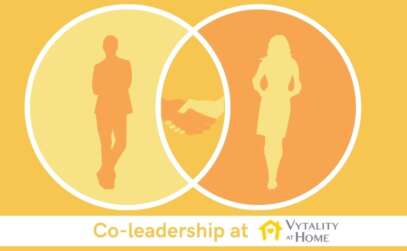Senior immigrants in Canada: a growing need for culturally focused care
By 2055, it is estimated that 40% of the Canada’s population will not have been born in Canada. Foreign-born immigrants account for 30% of the senior population. So it’s important that all aspects of senior care reflect this diverse range of cultural backgrounds and languages.
Culturally focused dementia care
A diagnosis of dementia is a life-changing moment, but imagine if your native tongue actually didn’t have a word for dementia? According to the Alzheimers Society of Canada, the lack of such a word in Punjabi is just one example of the need for tailored support for older adults living with dementia in in BIPOC communities.
As dementia student Navjot Gill explained in an article for CBN, in South Asian families, the assumption that the family takes care of its own can lead to a lack of awareness and cultural stigma around dementia.
Ngozi Iroanyah, manager of diversity for the Alzheimer Society of Canada, revealed how she had encountered these issues when her own father was diagnosed in 2007.
“My community is Nigerian and we also don’t talk about dementia, we don’t talk about seniors’ mental health. It’s heavily, heavily stigmatized.”
Senior immigrants in Canada
According to Statistics Canada, senior immigrants represent 30% of the total population over age 65.
“Immigrants reported 200 different countries as birthplaces and more than 200 ethnic origins … The largest source of immigrants is Asia (with) an increasing number of recent immigrants from Africa, the Caribbean and Central/South America.”
This requires the provision of more culturally aware services and provisions as these older people start to require more care both at home and in care homes.
(For some interesting reading on provision of cultural diverse services for immigrant seniors check out this 2012 newsletter from AMSSA, British Columbia.)
Speaking your language
Language can be a major barrier to understanding a diagnosis, in seeking help, gathering information, and even just talking to health professionals such as caregivers.
“Language diversity is pronounced, with more than 200 languages reported as mother tongues. … While most seniors speak either English or French, about 63% of immigrant seniors (65+) who arrived in Canada over the past five years (2012 to 2016) reported that they were unable to speak either official language.”
At Vytality at Home, we aim to match our clients living at home with dementia with a dedicated caregiver who literally speaks their language. We also aim that each client has their “own” dedicated caregiver. A familiar face each care visit and hearing that person speak their language can be very reassuring to those with dementia.
Keeping in touch
One of the major concerns in the Statistics Canada report quoted above was the potential for social isolation for senior immigrants. So it was heartening to also see this week the launching of the second phase of the government’s Connecting Families initiative.
Connecting Families aims to provide high speed internet access to seniors for $20 a month, up to 5 times faster than previously offered. The government’s goal is to give 98% of Canadians access to high-speed internet by 2026.
The Honourable Kamal Khera, Minister of Seniors, said:
“Seniors depend on the Internet to stay in touch with loved ones and access vital services. Providing low-income seniors with affordable access to high-speed Internet service will make a tremendous difference in their everyday lives.”
The Vytality at Home app
At Vytality at Home, we developed our own app which our clients love. It enables them to keep track of when their caregiver is arriving, and what care is booked. Family members can use the app remotely to connect with caregivers and even pay for care.
Like any app, using it does depend on some form of connection to the internet, either by wifi or by smart phone. So, the introduction of fast broadband will really help improve the speed of the app for any users currently on slow connections on their own home. You can find more details on our app here.
Want to talk to someone about dementia care for a loved one?
Contact us here at Vytality at Home:




